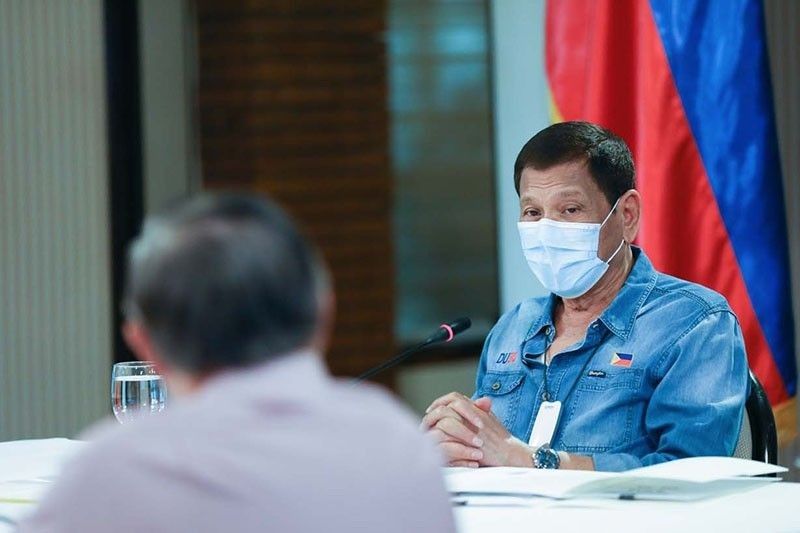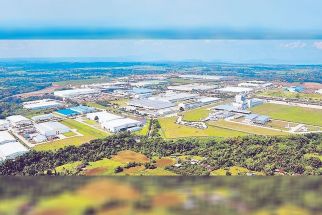Priority bill to cut red tape gets stuck in signing process

MANILA, Philippines (UPDATE 6:35 p.m., Nov. 19)— A priority legislation meant to speed up projects got stuck in Congress for over a month now, lessening the likelihood the measure could speed up stalled infrastructure outlays critical to a last-minute recovery.
An enrolled copy of the so-called anti-red tape bill was just signed by House Speaker Lord Allan Velasco on Thursday, his office said. The measure would go back to the Senate which would transmit it to President Rodrigo Duterte for enactment. Senate President Vicente Sotto said early in the day that Velasco was supposed to "sign and transmit" the bill to the Palace.
It took more than a month for the bill to get here despite Congress doing away with a bicameral conference committee typically convened to marry conflicting provisions of two versions of the bill. Sotto said the House agreed to adopt the Senate's output, but it was unclear what delayed sending the measure to the Palace for Duterte’s signature.
Presidential spokesperson Harry Roque has not responded to request for comment.
But the measure's importance to the Duterte administration cannot be denied. Shortly before the upper chamber passed Senate Bill 1844 on October 14, Duterte himself certified it as urgent, allowing the Lower House counterpart, House Bill 7884, to breeze through the measure’s second and third readings 2 days after.
An offshoot of Duterte’s complaints on slow rollout of telco towers, the bill heeded the chief executive’s request for broader powers to drop permits notorious for blocking the quick rollout of projects like roads, railway and even mining activities. Environmental clearances were exempted from the measure's intent.
With 42 days left in the year, an enactment at this point is unlikely to accelerate outlays stuck on the ground by tighter health precautions. For one, Duterte would still have to consult with agencies which permits can be removed from the bureaucratic process.
That presents fresh challenges for government struggling to spend billions of pesos in infrastructure to catapult the economy out of a pandemic-induced recession. Capital outlays were down 10.5% year-on-year and was about 3% off target as of September, and Ibarra Paulino, executive director at Philippine Constructors Association, was pinning his hope on promises of fewer red tape.
“Building permits takes a while to get, as well as occupancy permits. Most of the LGUs (local government units) mess around with the right of way acquisitions,” Paulino said in a recent phone interview.
The private sector is also waiting. While talks with the Anti-Red Tape Commission is ongoing to remove unnecessary licenses in real estate, Rosie Tsai, president of Subdivision and Housing Developers Association, another industry group, said a law would be a permanent fix to speed up the process.
Currently, Tsai said developers rolling out a single project would have to secure 87 permits by submitting over 300 documents to various agencies. “It would make our life easier,” she said in a separate phone call.
Mining sector not optimistic
However, not all are optimistic the bill would make difference, including the mining sector where tedious applications for environmental licenses would proceed as usual. The industry, dented for years by Duterte’s attacks, had likewise faced resistance from local states over fears their business results into irreversible environmental damage.
“We have several projects stuck in the pipeline. We cannot fast-track the environmental (permits) so in that sense, there’s really no effect,” Ronald Recidoro, executive director of Chamber of Mines of the Philippines Inc., said.
Cid Terosa, senior economist at University of Asia and the Pacific School of Economics said, delays in getting bill finalized is a lost opportunity for the economy to get better.
“Obviously, the delay in the transmittal of the anti-red tape bill will stall the creation of economic momentum that the economy direly needs,” he said in a text message.
Editor's note: Updated with information from Velasco's office.
- Latest
- Trending

























